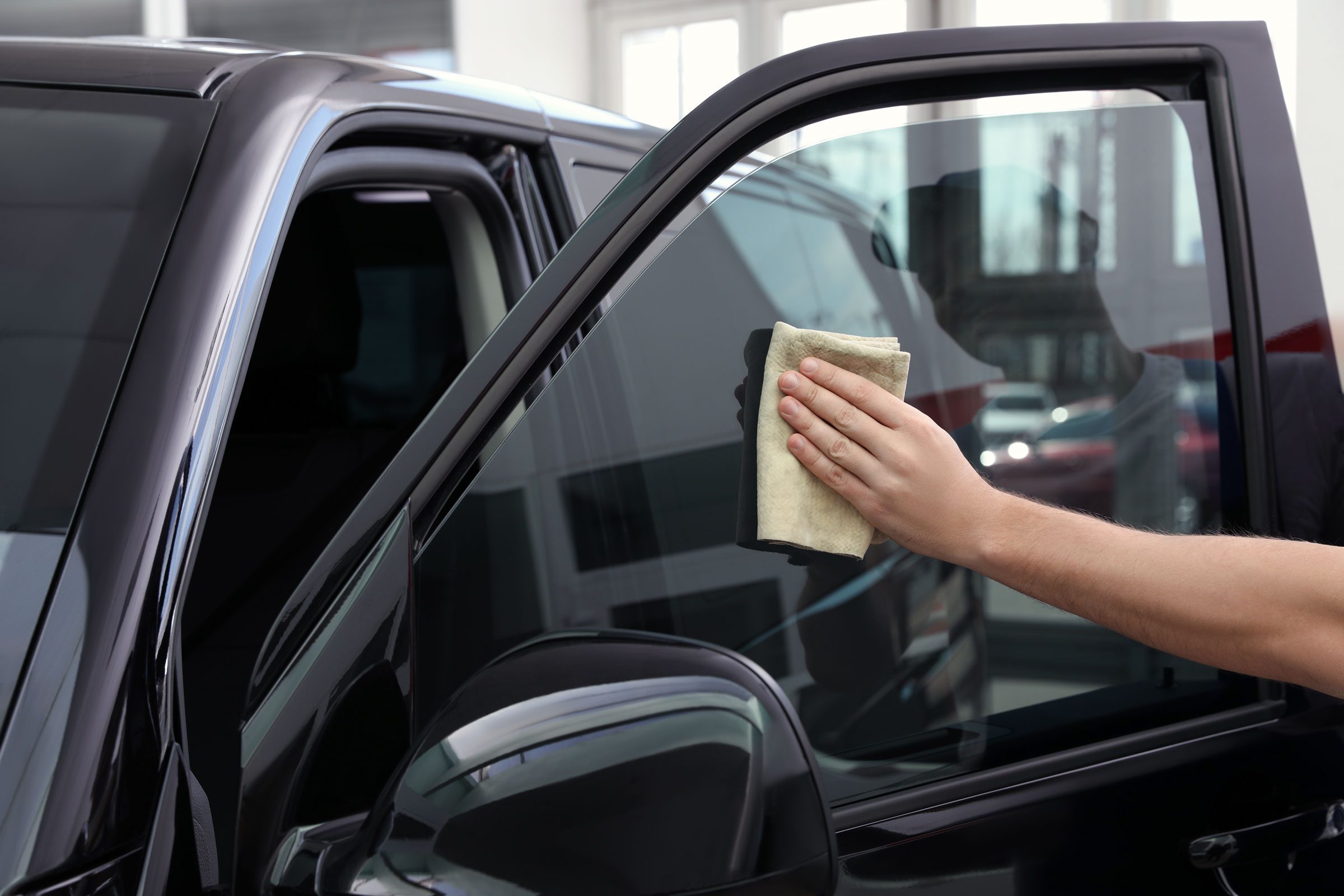Professional Window Tinting: Boost Personal Privacy and UV Protection for Your Car
Professional Window Tinting: Boost Personal Privacy and UV Protection for Your Car
Blog Article
The Complete Breakdown of Automobile Home Window Tinting Legislations: Stay Informed and Avoid Pricey Fines
Recognizing the ins and outs of automobile window tinting legislations is critical for each lorry owner. With guidelines differing across territories and states, an extensive knowledge of the permitted color degrees and guidelines can save you from prospective fines and legal troubles. By staying notified and guaranteeing conformity with these regulations, motorists can not just improve the aesthetic allure of their cars however additionally protect against pricey fines. Let's explore the nuances of home window tinting policies, from lawful percents to enforcement measures, and discover the important tips for maintaining tinting compliance.

Relevance of Understanding Tinting Regulations
Understanding tinting laws is crucial for car proprietors to make certain compliance with guidelines and avoid possible fines or fines. Each state has specific regulations pertaining to the darkness of home window tinting allowed on cars. These legislations remain in area to make sure the security of motorists, pedestrians, and police police officers. By being informed concerning tinting legislations, auto proprietors can make informed decisions concerning their vehicle modifications and avoid the inconvenience of having to get rid of unlawful color.
Along with legal repercussions, incorrect home window tinting can additionally impact exposure while driving, particularly in the evening or in negative climate condition. Dark home window tints can decrease exposure for the vehicle driver and block the view of pedestrians or various other vehicles, increasing the threat of crashes. car window tinting. Comprehending the tinting laws can aid chauffeurs strike a balance in between aesthetic appeals and safety
Moreover, following tinting laws can additionally stop unnecessary costs. Eliminating unlawful color and paying penalties can be costly, including financial problems to automobile owners. By following tinting legislations from the start, chauffeurs can stay clear of these added costs and make sure a smooth driving experience without disturbances from police.
Kinds Of Home Window Tinting Rules
Having a clear understanding of the significance of conforming with tinting regulations, it is necessary to know the different kinds of home window tinting guidelines imposed throughout different states. These guidelines generally focus on the Visible Light Transmission (VLT) portion, which measures the quantity of light permitted to travel through the tinted windows. States like California have rigorous policies, allowing only 70% VLT for the front side windows and windscreen, while states such as North Dakota allow as much as 50% VLT. Additionally, some states have varying regulations for rear windows and side windows behind the chauffeur. It's essential for vehicle proprietors to familiarize themselves with these details laws to avoid citations or penalties.
Moreover, specific states might also have policies regarding the reflective residential or commercial properties of home window tint and making use of particular colors. Reflective tint is often forbidden, and colors like red, amber, and yellow might not be permitted due to exposure problems. Understanding these nuances in home window tinting guidelines can assist cars and truck proprietors make educated choices when tinting their windows to guarantee conformity with the legislation.
Lawful Tinting Percent Standards
Checking out the acceptable tinting portions established by state laws offers essential assistance for vehicle proprietors seeking to adhere to lawful regulations. These guidelines dictate the maximum allowed darkness for window colors, normally measured in Visible Light Transmission (VLT) portion-- the amount of light that can pass through the color.
Comprehending these legal tinting percent guidelines is important to make certain compliance and prevent prospective fines or charges. Failing to stick to the defined VLT restrictions can cause citations, calling for elimination of illegal colors or dealing with financial penalties. As a result, before applying home window colors to a vehicle, it is recommended to research study and acquaint oneself with the tinting regulations certain to the state of enrollment. By adhering to these policies, car owners can take pleasure in the benefits of window tinting while remaining on the appropriate side of the regulation.

Enforcement and Effects of Infractions
Applying the recognized tinting portion guidelines is vital in maintaining conformity with state regulations on auto home window tinting. Failure to adhere to these laws can cause various consequences for lorry proprietors. Police perform routine checks to make sure lorries satisfy the specified color darkness limitations. If an offense is useful link determined, the repercussions can include fines, citations, and even required elimination of the prohibited color. Sometimes, repeated offenses may cause more extreme charges, such as factors on the chauffeur's certificate or car registration suspension. In addition, driving an automobile with excessively tinted windows can posture safety dangers by decreasing presence for the motorist and others when driving. To stay clear of these enforcement actions and prospective risks, it is essential for cars and truck proprietors to remain informed concerning the tinting regulations in their state and guarantee their lorry's window colors abide by the defined regulations.
Tips for Compliant Home Window Tinting
To ensure conformity with vehicle window tinting laws, it is essential for car proprietors to comply with specific suggestions for picking and applying window colors. Firstly, constantly check the local guidelines pertaining to allowed tint levels for every window of your car. Different states have differing legislations, so recognizing these guidelines is crucial. Decide for high-grade color films that are compliant with the recognized criteria. Inferior products may not provide the desired degree of UV defense or can fade over time, causing possible lawful concerns. Additionally, take into consideration having a professional window tinting solution set up the color. This can assist make sure that the tint is used properly, lessening the risk of bubbles, creases, or irregular protection that could result in non-compliance. Finally, maintain your color consistently by cleansing it with approved products to stop it from peeling off or gurgling, which might attract undesirable interest from authorities. By sticking to these ideas, you can appreciate the benefits of window tinting while remaining within the boundaries of the law.

Final Thought
In verdict, it is important to be knowledgeable regarding automobile home window tinting laws to prevent possible penalties and charges. Comprehending the different types of regulations and legal tinting percent guidelines can aid guarantee conformity with the legislation.
Having a clear understanding of the relevance of abiding with tinting regulations, it is essential to be conscious of the various kinds of window tinting guidelines applied across different states. Recognizing these subtleties in window tinting laws can aid auto proprietors make informed choices when tinting their windows to you could try this out make sure compliance with the law.
Prior to applying home window colors to an automobile, it is legal windshield tint recommended to research and acquaint oneself with the tinting legislations specific to the state of enrollment. To stay clear of these enforcement actions and prospective dangers, it is important for auto proprietors to stay informed concerning the tinting legislations in their state and ensure their lorry's window colors comply with the defined regulations.
To ensure conformity with car window tinting regulations, it is essential for vehicle owners to comply with certain tips for selecting and using home window colors.
Report this page